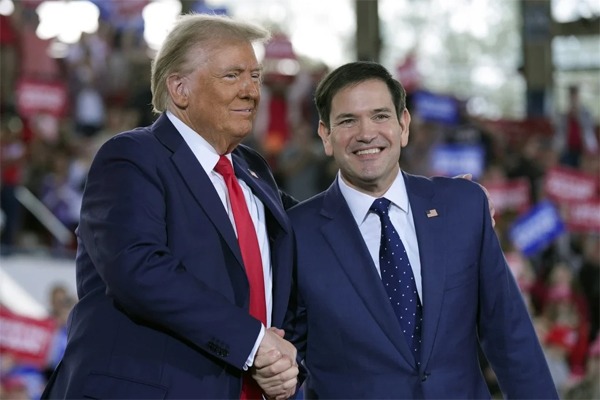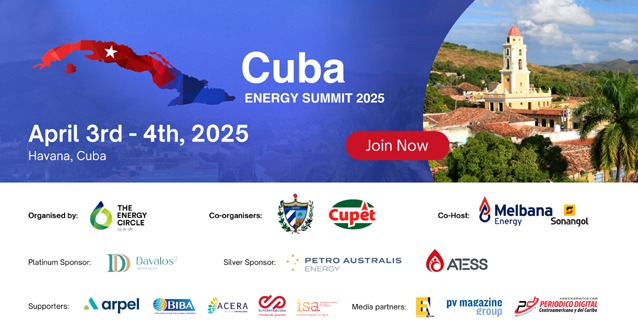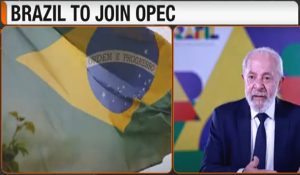Competing factions seek to shape Trump’s Venezuela policy

Immigration expected to be a key consideration
Kate Winston and Mery Mogollon, S&P Global
WASHINGTON/CARACAS
EnergiesNet.com 12 31 2024
There are several factions hoping to influence President-elect Donald Trump’s oil sanctions policy on Venezuela as President Nicolás Maduro clings to power in Caracas, and the shape of US policy could put up to 500,000 b/d of oil at risk, experts on the issue say.
The options for Trump include revoking all US licenses for companies to operate in Venezuela, adopting an America-first policy that only maintains the license for US company Chevron, or maintaining current licenses and potentially granting additional licenses in exchange for an immigration deal with Maduro.
S&P Global Commodity Insights analysts expect Trump to cancel all licenses except for the Chevron license. “We have 2024 production averaging 806,000 b/d, staying flat at 806,000 b/d in 2025, and declining to 784,000 b/d in 2026,” under this scenario, said Nick Blanco, a senior research analyst at Commodity Insights.
This outlook is based on Trump’s nomination of Senator Marco Rubio, Republican-Florida, to be Secretary of State, Blanco said. “Senator Rubio has, for a long time, been one of Nicolás Maduro’s most vocal opponents in the US and has repeatedly criticized Biden’s softer sanctions,” he said.
Chevron has lobbied hard to maintain its license, and keeping it is in line with Trump’s stated goal of wanting to keep gasoline prices low in the US, Blanco said.
Venezuelan crude is a good fit for US refineries, especially in the US Gulf Coast. The US imported an average of 216,000 b/d of crude oil and petroleum products in 2024 through September, according to US EIA data.
If Trump takes a hardline approach and revokes all licenses, Venezuelan production could drop to about 500,000 b/d, Ryan Berg, director of the Americas Program at the Center for Strategic and International Studies, told S&P Global Commodity Insights.
This estimate is based on Venezuelan production levels before the licenses, Berg said. It also assumes that there is a normal license wind-down period and that PDVSA continues to need joint ventures to operate productively, he said.
Production by state-owned PDVSA and its foreign partners averaged 875,000 b/d in November following an explosion at the Muscar gas complex, down from Venezuela’s directly reported average OPEC+ production of 989,000 b/d in October, according to a PDVSA preliminary production report.
Maximum pressure option
In addition to Rubio, the Venezuelan hardliners on Trump’s team include Deputy Secretary of State nominee Chris Landau and White House National Security Advisor nominee Michael Waltz, Berg said.
“My prediction is that it’s going to be a pressure-based approach, at least at the outset,” Berg said. “Now that doesn’t mean that we won’t get some kind of a deal at some point. But at first, you have to engage in pressure to build up your leverage,” he said.
But other incoming officials focused on immigration, like border czar Tom Homan and Deputy Chief of Staff for Policy Stephen Miller, may want to make a deal for oil sanctions relief in exchange for less migration from Venezuela, Berg said.
A policy of maintaining existing licenses is also backed by business interests like oil companies, creditors, and investors interested in getting into Venezuela’s economy, Berg said.
If Trump maintains current company-specific licenses, or grants additional licenses, Venezuelan government officials say they expect production to reach up to 1.3 million b/d by the end of 2025, Berg said.
Maduro has been positioning himself as a good partner on migration but he’s positioning himself on things that he can’t promise, Berg said. “Maduro cannot keep people in the country, and in many ways, his presence is what’s driving them out,” he said.
The Trump administration will likely maintain the company-specific licenses, at least for the first six months, and potentially extend or expand the number of licenses in exchange for a migration deal with Maduro, said David Goldwyn, president of Goldwyn Global Strategies and chair of the Atlantic Council Global Energy Center’s Energy Advisory Group.
“In Venezuela, the administration will prioritize containing Chinese expansionism in the hemisphere and containing migration over democracy promotion,” Goldwyn said.
Even before Trump takes office, it is possible the Biden administration will restrict licenses after the Jan. 10 presidential inauguration in Venezuela if Maduro does not cede power, said Fernando Ferreira, director of geopolitical risk service at Rapidan Energy Group.
At that point, it would be politically difficult for Trump to reverse course, Ferreira said. “I don’t think Trump would go about renewing them, at least not without a significant concession from Maduro, and I am not sure at that point that migration would be enough,” Ferreira said.
Caracas counts down
Maduro has announced he will assume a third, six-year term on Jan. 10, though he has not presented electoral records to prove his allegations he won the July 28 election.
Edmundo González Urrutia, who, according to evidence presented by the opposition, won the country’s presidency with almost 70% of the votes, is in Spain as an asylum seeker. But he has announced that he will return to Venezuela on Jan. 10 to assume the presidency.
María Corina Machado, whose leadership was the decisive factor in González’s victory, remains in hiding, under threat of imprisonment by the Maduro government.
Analysts in Venezuela do not dare to give forecasts about the inauguration, for fear of imprisonment. “Anyone who expresses an opinion that Maduro does not like can end up under pressure,” said an analyst who spoke on the condition of anonymity.
There are currently 1,905 political prisoners in Venezuela, according to Foro Penal, a Caracas-based non-governmental organization.
If Maduro stays in power, the oil industry’s outlook will remain bleak, said Lino Carrillo, a Venezuelan chemical engineer and consultant based in Canada. Maduro’s government would likely try again to privatize PDVSA operations, but with little to no success, he said.
The Maduro regime offers no legal protection against expropriations or breaches of commercial contracts in domestic or international courts, so private investors would likely remain cautious due to a lack of trust in the regime, Carrillo said.
“Historical actions by the Maduro and Chavez administrations have shown that once the regime feels secure with production levels, it tends to act unpredictably, often to the detriment of investors,” he said.
On the other hand, a peaceful transfer of power to González offers hope for a revitalized industry and economy, provided the transition is supported by robust international cooperation and internal reforms, Carrillo said.
International support could include sanctions relief from the US and the EU members, and efforts to restructure Venezuela’s debt through multilateral entities like the International Monetary Fund, World Bank, and Inter-American Development Bank, Carrillo said.
spglobal.com 12 30 2024












